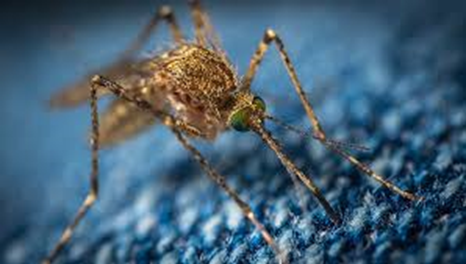Nicotine dependence
Diagnosis
& treatment
Nicotine dependence occurs
when you need nicotine and can't stop using it. Nicotine is the chemical in
tobacco that makes it hard to quit. Nicotine produces pleasing effects in your
brain, but these effects are temporary. So you reach for another cigarette.
The more you smoke, the more
nicotine you need to feel good. When you try to stop, you experience unpleasant
mental and physical changes. These are symptoms of nicotine withdrawal.
Regardless of how long
you've smoked, stopping can improve your health. It isn't easy but you can
break your dependence on nicotine. Many effective treatments are available. Ask
your doctor for help.
Products & Servicesc
Symptoms
For some people, using any
amount of tobacco can quickly lead to nicotine dependence. Signs that you may
be addicted include:
You can't stop smoking.
You've made one or more serious, but unsuccessful, attempts to stop.
You have withdrawal symptoms
when you try to stop. Your attempts at stopping have caused physical and
mood-related symptoms, such as strong cravings, anxiety, irritability,
restlessness, difficulty concentrating, depressed mood, frustration, anger,
increased hunger, insomnia, constipation or diarrhea.
You keep smoking despite
health problems. Even though you've developed health problems with your lungs
or your heart, you haven't been able to stop.
You give up social
activities. You may stop going to smoke-free restaurants or stop socializing
with family or friends because you can't smoke in these situations.
When to see a doctor
You're not alone if you've
tried to stop smoking but haven't been able to stop for good. Most smokers make
many attempts to stop smoking before they achieve stable, long-term abstinence
from smoking.
You're more likely to stop
for good if you follow a treatment plan that addresses both the physical and
the behavioral aspects of nicotine dependence. Using medications and working
with a counselor specially trained to help people stop smoking (a tobacco
treatment specialist) will significantly boost your chances of success.
Ask your health care team to
help you develop a treatment plan that works for you or to advise you on where
to get help to stop smoking.
Causes
Video: Smoking — Anatomy of
nicotine addiction
Show transcript for video
Video: Smoking — Anatomy of nicotine addiction
Nicotine is the chemical in
tobacco that keeps you smoking. Nicotine reaches the brain within seconds of
taking a puff. In the brain, nicotine increases the release of brain chemicals
called neurotransmitters, which help regulate mood and behavior.
Dopamine, one of these
neurotransmitters, is released in the reward center of the brain and causes
feelings of pleasure and improved mood.
The more you smoke, the more
nicotine you need to feel good. Nicotine quickly becomes part of your daily
routine and intertwined with your habits and feelings.
Common situations that
trigger the urge to smoke include:
Drinking coffee or taking
breaks at work
Talking on the phone
Drinking alcohol
Driving your car
Spending time with friends
To overcome your nicotine
dependence, you need to become aware of your triggers and make a plan for
dealing with them.
Risk factors
Anyone who smokes or uses
other forms of tobacco is at risk of becoming dependent. Factors that influence
who will use tobacco include:
Age. Most people begin
smoking during childhood or the teen years. The younger you are when you begin
smoking, the greater the chance that you'll become addicted.
Genetics. The likelihood
that you will start smoking and keep smoking may be partly inherited. Genetic
factors may influence how receptors on the surface of your brain's nerve cells
respond to high doses of nicotine delivered by cigarettes.
Parents and peers. Children
who grow up with parents who smoke are more likely to become smokers. Children
with friends who smoke are also more likely to try it.
Depression or other mental
illness. Many studies show an association between depression and smoking.
People who have depression, schizophrenia, post-traumatic stress disorder or other
forms of mental illness are more likely to be smokers.
Substance use. People who
abuse alcohol and illegal drugs are more likely to be smokers.
Complications
Tobacco smoke contains more
than 60 known cancer-causing chemicals and thousands of other harmful
substances. Even "all natural" or herbal cigarettes have harmful
chemicals.
You already know that people
who smoke cigarettes are much more likely to develop and die of certain
diseases than people who don't smoke. But you may not realize just how many
different health problems smoking causes:
Lung cancer and lung
disease. Smoking is the leading cause of lung cancer deaths. In addition,
smoking causes lung diseases, such as emphysema and chronic bronchitis. Smoking
also makes asthma worse.
Other cancers. Smoking
increases the risk of many types of cancer, including cancer of the mouth,
throat (pharynx), esophagus, larynx, bladder, pancreas, kidney, cervix and some
types of leukemia. Overall, smoking causes 30% of all cancer deaths.
Heart and circulatory system
problems. Smoking increases your risk of dying of heart and blood vessel
(cardiovascular) disease, including heart attacks and strokes. If you have
heart or blood vessel disease, such as heart failure, smoking worsens your
condition.
Diabetes. Smoking increases
insulin resistance, which can set the stage for type 2 diabetes. If you have
diabetes, smoking can speed the progress of complications, such as kidney
disease and eye problems.
Eye problems. Smoking can
increase your risk of serious eye problems such as cataracts and loss of
eyesight from macular degeneration.
Infertility and impotence.
Smoking increases the risk of reduced fertility in women and the risk of
impotence in men.
Complications during
pregnancy. Mothers who smoke while pregnant face a higher risk of preterm
delivery and giving birth to lower birth weight babies.
Cold, flu and other
illnesses. Smokers are more prone to respiratory infections, such as colds, the
flu and bronchitis.
Tooth and gum disease.
Smoking is associated with an increased risk of developing inflammation of the
gum and a serious gum infection that can destroy the support system for teeth
(periodontitis).
Smoking also poses health
risks to those around you. Nonsmoking spouses and partners of smokers have a
higher risk of lung cancer and heart disease compared with people who don't
live with a smoker. Children whose parents smoke are more prone to worsening
asthma, ear infections and colds.
Prevention
The best way to prevent
nicotine dependence is to not use tobacco in the first place.
The best way to keep
children from smoking is to not smoke yourself. Research has shown that
children whose parents do not smoke or who successfully quit smoking are much
less likely to take up smoking.
Diagnosis & treatment
Show references
Related
Associated Procedures
Stop-smoking service
Nicotine dependence
Symptoms & causes
Diagnosis & treatment
Doctors & departments
Advertisement
Mayo Clinic does not endorse
companies or products. Advertising revenue supports our not-for-profit missio
Patient Care & Health
Information
Diseases & Conditions
Nicotine dependence
Footer Navigation Li
Footer Tiles
Any use of this site
constitutes your agreement to the Terms and Conditions and Privacy Policy
linked below.
Jan Ricks Jennings, MHA,
LFACHE
Senior Consultant
Senior Management Resources, LLC
412.913.0536 Cell
724.733.0509 Office
JanJenningsBlog.Blogspot.net
August 20.20222




No comments:
Post a Comment